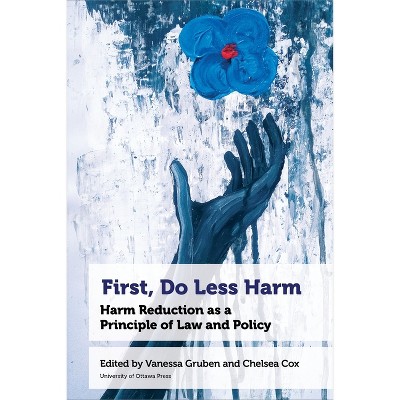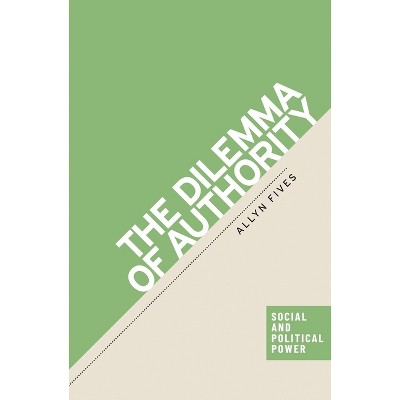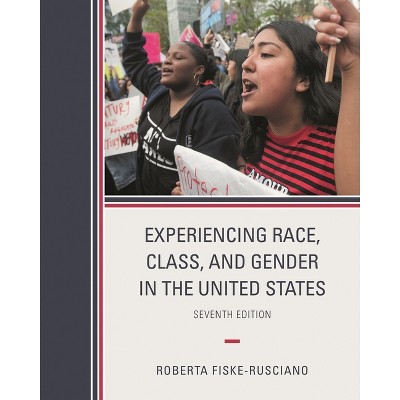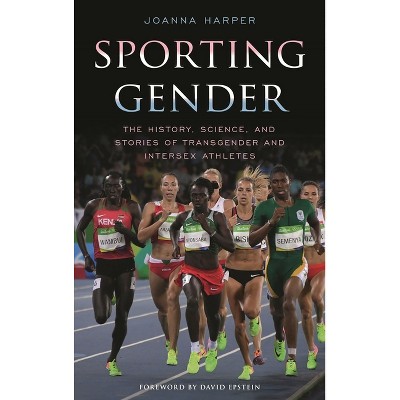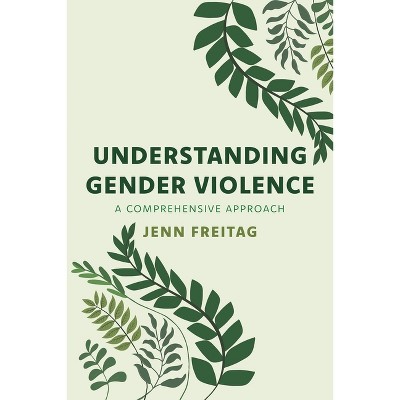Sponsored

Gender, Race, and Power - by Joyce P Kaufman & Kristen P Williams (Paperback)
In Stock
Sponsored
About this item
Highlights
- Kaufman and Williams present critical issues in international relations through an intersectional approach that examines race, gender, class, ethnicity, and power to arrive at better explanations for such core IR issues as war and peace, security, human rights, development and international political economy, and the global environment.
- About the Author: Joyce P. Kaufman is professor emerita of political science at Whittier College and Director of the Women, Peace and Security Program of the Institute of World Affairs.
- 186 Pages
- Political Science, International Relations
Description
About the Book
This book interrogates traditional international relations theories and issues, such as war, peace, security, and trade, to demonstrate that a more comprehensive and holistic understanding can be found utilizing an intersectional analysis through the lens of gender, race, and class.Book Synopsis
Kaufman and Williams present critical issues in international relations through an intersectional approach that examines race, gender, class, ethnicity, and power to arrive at better explanations for such core IR issues as war and peace, security, human rights, development and international political economy, and the global environment.
Their approach builds on early calls amongst feminist IR theorists, imploring "Where are the women?" It is only fairly recently that students of IR have broadened the approach to the field to incorporate the dimensions of race, ethnicity, and class as well as gender. Kaufman and Williams help guide readers exploring questions like: How does gender matter for understanding war and peace? How does race matter? Where are the men? What is intersectionality in IR? How does an intersectional approach change or broaden our understanding of international relations?
Review Quotes
Gender, Race, and Power: Examining IR through an Intersectional Lens models an approach of grounding research on international relations with an intersectional theoretical framework. By using intersectionality as a guide for understanding complex and global case-studies, Kaufman and Williams reveal important power disparities that must be understood if we are invested in understanding inequities around the globe. Intersectionality is a thread that connects each of these case-studies to the study of power and how it manifests across different contexts of human security, the global economy, climate change and more. International relations cannot be fully understood without attention to intersectionality, and Kaufman and Williams illuminate why this theoretical approach is so important for understanding global problems and solutions.
Kaufman and Williams offer a much-needed and accessible examination of International Relations, explaining the myriad ways in which gender, race, empire, and power intersect and shape the core of every key issue in the field of International Relations. Gender, Race, and Power should be essential reading for every Introduction to IR course.
Kaufman and Williams present a powerful pedagogical tool for students of gender and IR. Both challenging and robust, this textbook does not hesitate to challenge many preconceptions in the fields of political and IR theory with their intersectional approach. This will be a seminal book for students and faculty who wish to develop a nuanced understanding of the politics-policy-ethics nexus of the security debate.
With Gender, Race, and Power, Kaufman and Williams take a delightful step in the direction of a genuinely plural IR. This is a book built from real curiosity, heterodoxy, and collaboration. It positively brims with important and timely discussion, on such diverse topics as war, peace, intervention, economy, and environment. Kaufman and Williams are not trying to undo IR, but to show how intersectional analysis, developed out of feminist and postcolonial research, answers questions in and of world politics in empirically and intellectually impactful ways. Gender, Race, and Power is a wonderful contribution, a must-read for anyone interested in expanding their international relations horizons.
About the Author
Joyce P. Kaufman is professor emerita of political science at Whittier College and Director of the Women, Peace and Security Program of the Institute of World Affairs. She is the author of numerous books, articles and papers on women and war, U.S. foreign and security policy, and international relations. She received her B.A. and M.A. from New York University and her Ph.D. from the University of Maryland.Kaufman is the sole author of Introduction to International Relations, 3rd edition (Rowman and Littlefield, 2022); A Concise History of United States Foreign Policy, 5th edition (Rowman and Littlefield, 2021); andNATO and the Former Yugoslavia: Crisis. With Andrew Dorman she was co-editor of Providing for National Security: A Comparative Analysis (Stanford University Press, 2014); and The Future of Transatlantic Relations, (Stanford University Press, 2011) and contributed original chapters to both. She is also the author of a number of original articles including "Women and Political Violence in Northern Ireland: Newspaper Imagery during the Troubles," Women's History Review, 30:7 (2021); "The U.S. and NATO in a Trump Administration: Lessons of the Past and Prospects for the Future," International Affairs, 93: 2 (2017) 251-66; and "NATO and the Former Yugoslavia," in The Journal of Conflict Studies, Winter 2000.
Kristen P. Williams (PhD, UCLA) is professor of political science at Clark University. She is the author, co-author, and co-editor of several books, chapters, and journal articles on women/gender and war, nationalism and ethnic conflict, and hegemony and international relations. Williams is the sole author of Despite Nationalist Conflicts: Theory and Practice of Maintaining World Peace (Praeger, 2001). With Neal G. Jesse, she co-authored Identity and Institutions: Conflict Reduction in Divided Societies (SUNY, 2005) and Ethnic Conflict A Systematic Approach to Conflict (CQ Press, 2011). She co-edited Beyond Great Powers and Hegemons: Why Secondary States Support, Follow or Challenge, (Stanford University Press, 2012). Her academic articles have been published in journals, including Political Psychology, International Feminist Journal of Politics, Journal of Research in Gender Studies, and International Politics, and Oxford Bibliographies in International Relations. Her most recent publication is a chapter in the edited volume, the Oxford Handbook of Gender, War and the Western World since 1600(Oxford University Press, 2020).
Shipping details
Return details
Trending Non-Fiction






